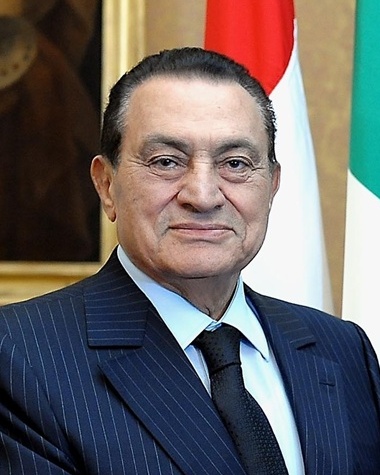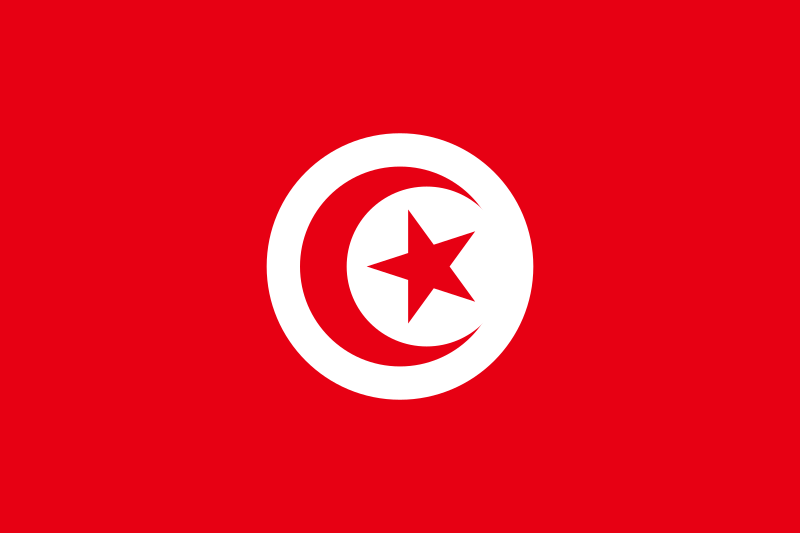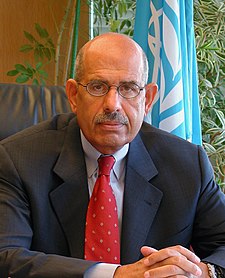 |
| Protesters in Egypt (wikipedia) |
World events, it seems, have overtaken our domestic affairs, for the moment at least. Egypt's rallying cry for democracy has not only distracted President Obama from job creation, but the Republicans on Capitol Hill from the non-job priorities that have come to define their first month of power. In fact, the result has been a bipartisan endorsement--so far--of the President's careful walk around the history-making events in the storied Arab nation. The importance, both of Egypt and this upheaval, cannot be understated.
First a little background. Egypt has not had a representative government, really, well ever. Four men have led Egypt since it threw off the British backed monarchy that had existed for nearly a century. British control of Egypt rested on the UK's desire to control the Suez Canal. Its control predated the European breakup of the Ottoman Empire after WWI. Although not Egypt's first president, Gamal Nasser, Egypt's second, came to be the face of the Arab worlds anti-Israel campaign. Nasser led Egypt to war with Israel in 1956 and 1967 and often the representative to the world on anti-Israel rights.
His successor, Answar Sadat, president from 1970 until his assassination in 1981, would be the Egyptian leader that formed a peace treaty with Israel. That treaty and the imperfect, but coridal Egypt-Israel relationship has become such a critical component of the overall Middle East that Israel's defense posture is such that it assumes no attack would come from Egypt. Think about how the US assumes no formal military attack would come from Mexico.
 |
| Egyptian Pres. Hosni Mubarak (wikipedia) |
The threat to that relationship, particularly from a potential Islamist takeover of Egypt, is what scares not just Washington, but all of the Western world. The Muslim Brotherhood, whose routes go back to British rule, has been liked to a Hamas/Hezbollah leaning Islamic group based in Egypt. All together, the brotherhood represents the single largest opposition group to Pres. Hosni Mubarak's rule. Therefore, an Islamic takeover of Egypt to make it look like Gaza, Lebanon, Iran or Afghanistan under the Taliban (an extreme example) may concern for not only Israel security and American interests, but the interests of the entire world. Whatever you may say about Israel, and there is plenty, it has a right to exist (to what geographic extent is debatable). It is important to remember, however, that this opposition movement is not controlled or defined by the Brotherhood. The protesters represent a large and fair cross-section of Egypt and contains many moderate voices. The Brotherhood, is by all accounts, only one and fairly small component of this movement.
The United States backed autocracies in large part because they were also secular. Remember, the United States at one time was an ally (of sorts) of Saddam Hussein's Iraq during the 1980's, which, too, was secular. These secular governments, including Egypt, Syria, Jordan, and Turkey have large Muslim populations that are or were friendly to the United States. America's foreign policy, apparently could not enforce the detente, if not the peace, between Israel and the Arab world and therefore its oil supply absent secular although dictorial governments. The big exception, of course, is Saudi Arabia, which though a theocracy, is not run by the religious extremists directly.
However, there is some cause for hope. Unlike the manufactured elections pushed by the US in the Palestinian territories and to some extent Lebanon, this move for democracy is organic. It is not a forced exercise for the sake of boosting democracy. Yes, the protesters want a responsive elected government, especially as the economy has only gotten worse. However, the fuel for the fire was the peaceful fall of another dictator.
 |
| Flag of Tunisia (wikipedia) |
While this moment is really about Egypt and our interests are limited to those that are directly affected by the transition, it is important to take a lesson from the Egyptian movement. Egypt is more free than many Arab countries, but that is not really saying much. Most media is controlled by the state. The military retains a role as a kingmaker. The economy is controlled by the state in such a way that many jobs and positions are available only to the well-connected. However, there is some limited free speech.
The purpose of this is to draw a comparison to protests that have occurred here in the United States in the past two years. Although often painted in the same vein as economic protests that happened during the Great Depression, too often the complaints are over theoretical gripes about government control in our lives.
To see the difference, consider the words that Cong. Michelle Bachmann and Paul Ryan, particularly the latter, used in their respective responses to Obama's State of the Union. Besides the fact that liberty has become such an overused word that it has lost any meaning (this had become the case in our opinion well before the Tea Party), both used words that played to philosophical liberty, rather than concrete examples of tyranny.
In other words, they talked about government control of just about anything in terms that do not translate into any real loss of freedom for Americans. Sure, there are cases where the government regulates us, but how many Americans think that driver's licenses or fire inspections are terrible afronts to our liberty? The government does not own and control our media. It does not enforce the size of our family. It does not jail people for no reason or deny them the right to a trial. The military is subordinate to our civilian, elected government. In fact, except for natural disasters and truly violent riots, it cannot even operate as law enforcement domestically. These are concrete freedoms that are denied to millions if not billions of people across the globe every day.
 |
| Protesters in Tahrir Square (wikipedia) |
Back in Egypt, it appears that Mubarak's days are definitively numbered. Questions remain as to whether he will serve out his term ending in September, however his time will come sooner or later. One way or another, Mubarak has held the peace with Israel and been a staunch U.S. ally. That is not really our right to say, but certainly we could encourage the opposition to let Mubarak live out his life in Egypt if he so desires, albeit under reasonable restrictions.
 |
| Mohamed ElBaradei (wikipedia) |
Concern is rising that pro-Mubarak forces are trying to push back. Hopefully this will not escalate because it will only end badly for all sides, not just the pro-democracy protesters, but Mubarak as well. Mubarak's definance is not what his country needs and if he actually loves it, he should accept this development, not try to spin it in his favor. That effort will not be credible and it will only serve to shame a nation whose history goes back millennia.






No comments:
Post a Comment